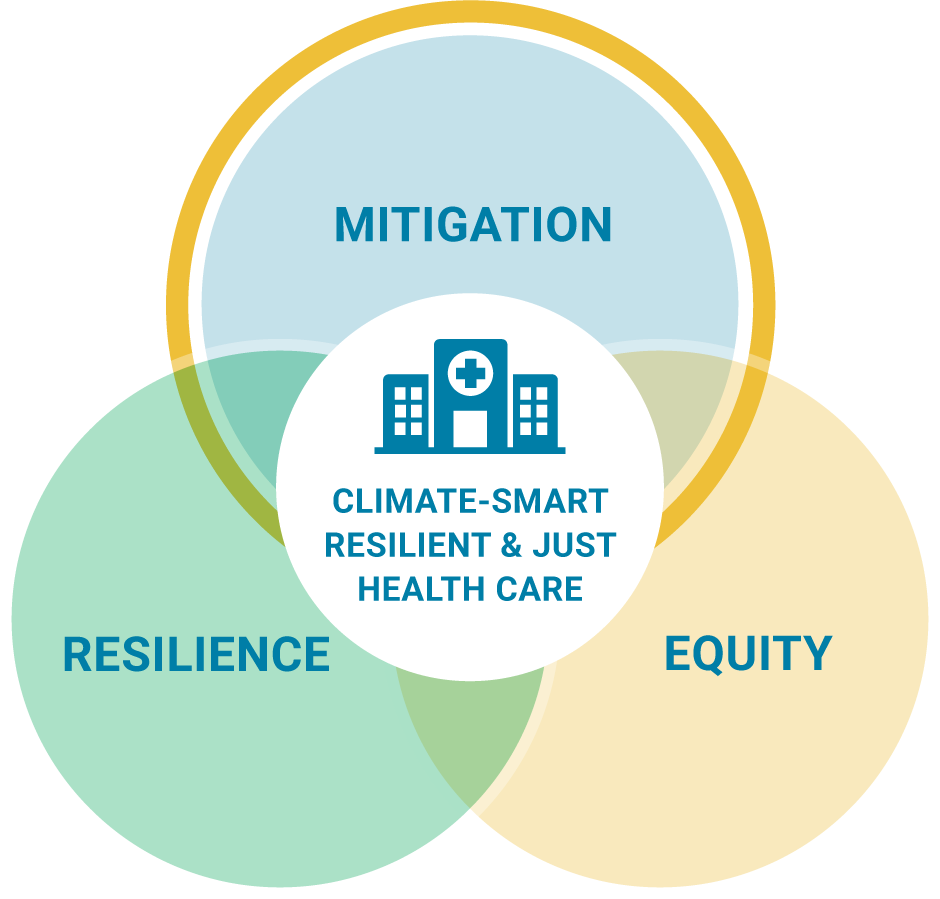Together our powerful network will transform the health sector — ensuring it can balance the immediate needs for mitigation, resilience, and equity, while serving as a leader in the broader shift to a just, low-carbon economy.
Climate change is humanity’s biggest health threat, and we’re at a tipping point.
The health care sector is responsible for 8.5% of U.S. greenhouse gas emissions, with the U.S. health sector accounting for 25% of global health sector emissions. In reducing their emissions, hospitals protect patients and communities from the health impacts of climate change, reduce health care costs, and improve health equity.
A hospital’s climate and environmental impact is vast, ranging from energy consumed to food procured and served, to single-use plastic and other waste generated, to anesthetic gases, transportation, and so much more. We provide climate-smart strategies and solutions that can improve all areas of health care delivery. Our objective is to transform the health sector to mitigate the climate crisis and its impacts on human health and accelerate the broader transition to a clean energy economy.
Definition: Mitigation
Health care starts by doing no harm, mitigating direct fossil fuel emissions so that the delivery of health care creates no negative health impacts – and evolves to a healing role, building community health and resilience and creating conditions for all communities to thrive.
Our vision for the future
The World Health Organization has identified the climate crisis as humanity's most significant health threat, making climate mitigation a critical global health opportunity. A hospital’s climate and environmental impact is vast, ranging from energy consumed, to food procured and served, to single-use plastic and other waste generated, to anesthetic gases, transportation, and so much more. Without a rapid transformation to a low-carbon society, the health threats of a warmer planet will grow increasingly severe and more numerous, especially for the most vulnerable members of our communities.
Health Care Without Harm provides mitigation strategies and works with health care to develop solutions to reduce impacts in all areas of the hospital. Hospitals can protect patients and communities from the health impacts of climate change, reduce health care costs and improve health equity, and accelerate a societal transition to an equitable low-carbon economy.

Our stories: How one health system increased plant-forward options and saw its climate impact drop
Over five years, UC San Diego reduced its emissions by 25.43%, which is equivalent to taking 837 vehicles off the road. The system reports being pleased with its progress but still strives to continue their work towards a plant-forward future, knowing that the global food system must continue to reduce its impact beyond the Cool Food goal.
This is just one of 38 case studies from our series, "How hospitals in 17 countries are tackling decarbonization & resilience, saving them $15M 🡥"
Featured initiatives
Climate mitigation
CLIMATE AND HEALTH
Reduce emissions and implement climate-smart health care, driving low-carbon economic transition.
Place-based partnerships
RESILIENCE
Facilitate deep, trusting partnerships with community-based organizations to build replicable models for collaborative action.
Climate leadership
CLIMATE AND HEALTH
Act as messengers for the climate-health crisis and advocate for climate-smart policies.
People and planet-friendly food
HEALTHY FOOD
Discover food service strategies that reduce your climate impact and grow resilient food systems.
Purchasing sustainable products
SUSTAINABLE PROCUREMENT
Safer toxic-free alternatives are available for nearly every area of health care delivery.
